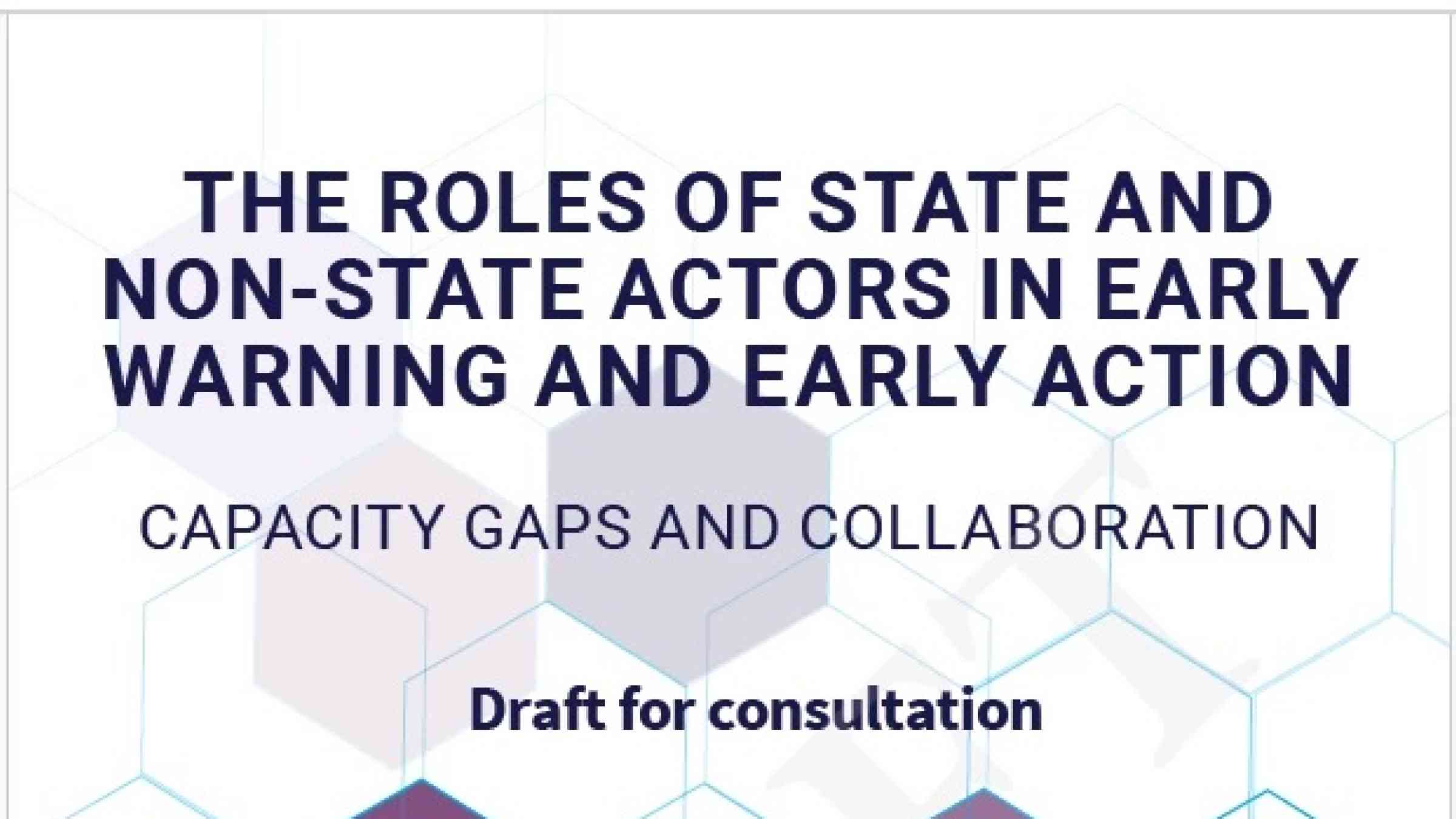Launch of new REAP paper for consultation: The roles of state and non-state actors in early warning and early action

The Early Warning Initiatives Working Group of REAP, co-led by Practical Action and the UK Met Office has launched its draft paper for consultation on the Roles of State and Non-State Actors in Early Warning and Early Action.
The paper document underscores the crucial role of non-state actors in early warning and early action (EWEA) for effective disaster risk reduction. It provides an overview of state and non-state actors in building resilient early warning systems and presents eight essential recommendations for international organisations, national governments, and the wide range of actors engaged in building and delivering EWS to enhance collaboration and ensure a comprehensive approach to disaster risk reduction and response. The accompanying set of actions aim to promote the widespread adoption, utilisation, and sustainability of these recommendations.
The authors of the paper are now seeking wider feedback on this draft of the paper, in order to ensure clarity and alignment with stakeholder needs, foster engagement and ownership of the paper's recommendations and build consensus around them, and to enhance the paper's legitimacy and credibility through inclusive feedback and diverse perspectives.
Download the draft paper for consultation here.
Download Figure 1 (overview of the state and non-state actors involved in building early warning systems (EWS) here.
Download Figure 2 (roles and contributions across the four key areas of the early warning system value chain) here.
We welcome your feedback and contributions and comments through this short online survey. The consultation is open until Friday 19th January 2024.
For further information or enquiries, please contact: reap.secretariat@ifrc.org.